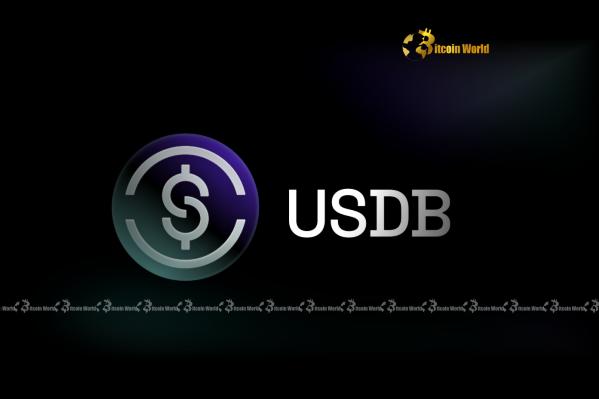BitcoinWorld

CFTC Nomination: The Controversial Battle Over Brian Quintenz’s Crypto Stance
The world of cryptocurrency is no stranger to regulatory debates, but few appointments spark as much fervent discussion as those to key financial oversight bodies. Recently, the proposed CFTC nomination of Brian Quintenz, a prominent figure from Andreessen Horowitz (a16z), has ignited a firestorm of controversy, drawing significant pushback from influential voices within the crypto community. What exactly makes this nomination so contentious, and what are the potential ramifications for the future of digital assets?
Unpacking the Concerns: Why the Pushback on this Crucial CFTC Nomination?
U.S. President Donald Trump’s selection of Brian Quintenz, a16z’s Global Head of Policy, to lead the Commodities Futures Trading Commission (CFTC) was initially met with keen interest. However, as reported by The Block, this nomination has swiftly become a flashpoint, facing strong opposition from prominent crypto figures, including Gemini’s co-founders Tyler and Cameron Winklevoss. Their concerns, and those of other unnamed critics, highlight several key areas of contention:
- Views on Crypto Programming: Critics express apprehension regarding Quintenz’s stance on the fundamental aspects of crypto programming, which underpins the decentralized nature of most digital assets. Any regulatory approach that misinterprets or seeks to over-regulate the code itself could stifle innovation.
- Prior Government Roles: While Quintenz has prior experience as a CFTC Commissioner, some argue that his previous positions might not fully align with the evolving, dynamic needs of the decentralized finance (DeFi) space and the broader crypto ecosystem.
- Support for Central Bank Digital Currencies (CBDCs): Perhaps one of the most significant points of contention is Quintenz’s perceived support for CBDCs. While CBDCs are government-issued digital currencies, they often operate on centralized frameworks, directly conflicting with the core principles of decentralization, privacy, and permissionless innovation that many in the crypto community champion. The fear is that a leader supportive of CBDCs might inadvertently push policies that undermine true decentralized digital assets.
This confluence of concerns paints a picture of a crypto industry wary of a regulator who, despite a background in the space, might hold views perceived as antithetical to its foundational ethos.
The Kalshi Conundrum: Unraveling Conflict of Interest Allegations in this CFTC Nomination
Beyond his general stance on crypto, a more specific and potentially damaging allegation has emerged, casting a shadow over the CFTC nomination: Brian Quintenz’s ties to Kalshi, a prediction market platform where he serves on the board. Over the weekend, Dustin Guoker, leader of Closing Line Consulting, brought to light a Substack post detailing emails obtained through a freedom of information request. These emails suggest that Quintenz may have sought non-public information from the CFTC regarding rivals to Kalshi.
What is Kalshi and Why Does it Matter? Kalshi is a regulated prediction market where users can bet on the outcome of future events. While prediction markets are a growing area, their regulatory treatment is complex and often falls under the CFTC’s purview. Quintenz’s advocacy for prediction markets, coupled with his board position at Kalshi, raises serious questions about potential conflicts of interest. The accusation that he might have leveraged his influence or sought proprietary information about competitors while potentially poised for a top regulatory role is a significant red flag for transparency and fair competition.
The gravity of these allegations was underscored by recent events in the Senate. A crucial Senate vote to advance Quintenz’s nomination, initially scheduled for July 28, was called off for the second time. Speculation abounds that this postponement was a direct result of insufficient backing or mounting pressure from industry groups deeply concerned about his fervent advocacy for prediction markets and the ethical implications of his Kalshi ties. This delay signifies a growing hesitancy among lawmakers to proceed without thoroughly addressing these significant concerns.
Brian Quintenz’s Vision vs. Crypto Community’s Principles: Impact on CFTC Regulation
The CFTC plays a pivotal role in regulating derivatives markets, and its jurisdiction increasingly extends to certain aspects of the cryptocurrency landscape, particularly regarding crypto derivatives. Therefore, the individual at its helm holds immense power to shape the future of digital asset innovation and adoption in the U.S. The debate surrounding Brian Quintenz’s CFTC nomination highlights a fundamental clash of philosophies: the established regulatory framework’s approach versus the decentralized, permissionless ideals of the crypto community.
The Challenge of Regulatory Interpretation: The crypto industry often advocates for clear, innovation-friendly regulation that understands the unique technological underpinnings of blockchain. Concerns about Quintenz’s ‘crypto programming’ views suggest a fear that his interpretation might lean towards traditional finance models, potentially stifling the very innovation he purports to support through his a16z role.
CBDCs and Decentralization: The tension over CBDCs is particularly acute. While proponents argue CBDCs could modernize finance, many in crypto see them as a governmental tool for control, potentially eroding the financial privacy and censorship resistance that decentralized cryptocurrencies offer. A CFTC chair who actively promotes CBDCs might inadvertently create an environment less conducive to the growth of truly decentralized protocols and assets.
This delicate balance underscores the critical need for a CFTC leader who possesses not only regulatory acumen but also a deep, nuanced understanding of blockchain technology and its philosophical underpinnings. The industry seeks a regulator who can foster innovation while ensuring market integrity, rather than imposing frameworks that might inadvertently stifle growth or compromise core decentralized principles.
Navigating the Regulatory Labyrinth: A Path Forward for Crypto and the CFTC
The ongoing saga of Brian Quintenz’s CFTC nomination is more than just a political drama; it’s a stark reminder of the evolving and often contentious landscape of crypto regulation in the United States. It underscores the critical importance of transparency, impartiality, and a profound understanding of emerging technologies in high-level regulatory appointments.
What Does This Mean for the Crypto Industry?
- Increased Scrutiny: The pushback signals that the crypto industry is maturing and becoming more assertive in advocating for its interests. Future nominations for key regulatory roles will likely face similar, if not greater, scrutiny regarding their crypto stance and potential conflicts.
- Call for Clarity: The incident amplifies the industry’s call for clear, consistent, and forward-thinking regulatory frameworks for digital assets. Ambiguity only breeds uncertainty and hinders legitimate innovation.
- Advocacy is Key: It highlights the power of collective industry voice. The ability of figures like the Winklevoss twins and groups to mobilize and voice concerns can significantly influence political processes.
As the digital asset space continues its rapid expansion, the decisions made by regulatory bodies like the CFTC will profoundly impact its trajectory. Ensuring that leadership positions are filled by individuals who can navigate the complexities of traditional finance and the innovative spirit of crypto, without perceived conflicts of interest, is paramount for fostering a healthy and robust digital economy.
The outcome of this nomination, whatever it may be, will undoubtedly set a precedent for how future crypto-related regulatory appointments are approached and perceived. It’s a testament to the growing influence of the crypto sector in the broader financial and political discourse.
The controversy surrounding Brian Quintenz’s CFTC nomination encapsulates the broader tensions at play in the rapidly evolving world of digital assets. From concerns over his stance on decentralized principles to serious allegations regarding conflicts of interest tied to prediction markets, this nomination has ignited a crucial debate about the kind of leadership the crypto industry needs at the helm of its regulatory bodies. As the Senate continues to deliberate, the crypto community watches closely, understanding that the outcome will not only shape the future of prediction markets but also set a significant precedent for how digital assets are governed in the years to come. Transparency, impartiality, and a deep, nuanced understanding of the technology remain non-negotiable for effective and fair regulation.
Frequently Asked Questions (FAQs)
Q1: What is the CFTC and what is its role in cryptocurrency regulation?
A1: The Commodities Futures Trading Commission (CFTC) is an independent agency of the U.S. government that regulates the U.S. derivatives markets, which include futures, options, and swaps. Its role in cryptocurrency has expanded as digital assets are increasingly seen as commodities, particularly in the context of crypto derivatives and certain spot markets.
Q2: Who is Brian Quintenz and what is his background?
A2: Brian Quintenz is currently the Global Head of Policy at Andreessen Horowitz (a16z), a prominent venture capital firm known for its significant investments in the crypto space. Prior to this, he served as a Commissioner on the CFTC, giving him direct experience within the regulatory body.
Q3: Why are Brian Quintenz’s ties to Kalshi controversial?
A3: Quintenz serves on the board of Kalshi, a regulated prediction market platform. Allegations suggest he may have sought non-public information from the CFTC about Kalshi’s rivals while potentially being considered for a top regulatory role. This raises concerns about potential conflicts of interest and fairness in market competition, especially given the CFTC’s oversight of prediction markets.
Q4: How do Central Bank Digital Currencies (CBDCs) conflict with the principles of decentralization?
A4: CBDCs are digital forms of a country’s fiat currency, issued and controlled by a central bank. They are typically centralized systems, giving the government significant control over issuance, transactions, and user data. This contrasts sharply with the core principles of decentralization inherent in many cryptocurrencies, which aim for peer-to-peer transactions, censorship resistance, and reduced reliance on central authorities.
Q5: What is the significance of the delayed Senate vote on Quintenz’s CFTC nomination?
A5: The repeated postponement of the Senate vote indicates significant hurdles and a lack of sufficient support for Quintenz’s nomination. It suggests that lawmakers are taking the concerns from industry groups and allegations of conflict of interest seriously, leading to increased scrutiny and potentially jeopardizing his appointment.
Did this article shed light on the complexities of the CFTC nomination? Share your thoughts and this article on social media to keep the conversation going!
To learn more about the latest crypto market trends, explore our article on key developments shaping crypto regulation and its future trajectory.
This post CFTC Nomination: The Controversial Battle Over Brian Quintenz’s Crypto Stance first appeared on BitcoinWorld and is written by Editorial Team





